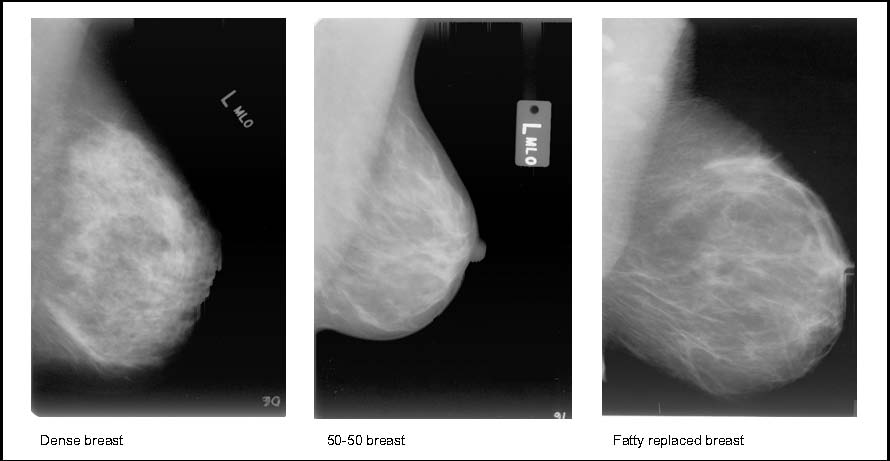A recent study published this Tuesday, Jan. 26, in the Journal of the American Medical Association found that number of women ages 25 to 39 developing metastatic breast cancer, the most advanced stage of cancer when it spreads to vital organs and threatens life, has tripled between 1976 and 2009. While the number of cases were still relatively small, these women had cancer that spread before they were even diagnosed, which can happen when doctors are dismissive of a breast lump concern due to the patient’s age and especially when mammograms are the only course of screening used.
In 2009, Connecticut passed legislation that requires radiologists to inform patients about the density of breast tissue. If the report states that you have greater than 50 percent breast tissue, you “have the opportunity” to receive additional testing, usually through ultrasound screening of both breasts, but may also include a breast MRI.
Because younger women have more circulating hormones, they are more likely to have dense breast tissue. According to the U.S. Department of Health and Human Services, women with dense breast tissue also have a higher risk of developing breast cancer than women their age without dense tissue. The reason for this is that dense breast tissue can hide tumors on a mammogram.
Forty percent of women have dense breast tissue. Dense breast tissue, made up of more breast and connective tissue than fat, can look white or gray on a mammogram. Tumors also are white, which makes it especially hard to completely identify healthy breast in women with denser breast tissue.
Most of the advanced cancer increases involve tumors sensitive to the hormone estrogen. In addition to more naturally hormones, rising rates of obesity could be contributing to this surge, as estrogen is attracted to increased fat stores in the breast. Toxic chemicals, such as estrogen-mimickers like BPA in plastics and parabens in make up and skincare products, are causing pre-menopausal women to ingest even more estrogen from the environment.
Dr. Len Lichtenfeld of the American Cancer Society told NPR on Wednesday that a defining characteristic of women of this generation is that they also have been delaying childbirth. Estrogen levels soar during pregnancy.
“There is some thinking on our part that this is related to perhaps delay in childbirth or to the actual effects of pregnancy itself in this age group,” he says. “That may have something to do with the hormonal relationship.”
Women of any age should make sure they do monthly self-examinations and report any new and unusual lumps to their physicians.
In 2009, Connecticut became the first state to require that women be told if they have dense breasts and to demand insurance companies cover ultrasound scans for those women. A woman from Woodbury, Nancy Cappello, PhD, is credited for getting the notification bill into motion. She was 51 when a doctor felt a lump in her breast, six weeks after she had a normal mammogram. A second mammogram still returned normal do to Cappello’s dense breast tissue.
By the time she was diagnosed, her cancer had spread to 13 lymph nodes and she need a mastectomy, chemotherapy, radiation and hormone treatment. Her breast surgeon estimated that the cancer had been growing for four to five years, despite 11 years of normal mammogram screenings, Cappello told Parade magazine.
In addition to launching a nonprofit, Are You DENSE, to educate women about breast density and its significance in the early detection of breast cancer, Cappello and her husband, Joe, worked to initiate state legislation requiring doctors to make sure patients are informed of their breast density risk. In addition to Connecticut, notification laws have been passed in New York, California, Texas and Virginia. A bill calling for a federal law has been introduced in the House.
“I want to help other women,” Cappello, formerly the state’s chief of special education, told The New York Times last October. “I can’t help myself. My cancer should have been detected at a much earlier stage.”

[…] me to get a baseline mammogram, at the age of 35. After the procedure, I was informed that I have very dense breast tissue—not a surprise—so I scheduled a follow-up ultrasound. I don’t remember the specific wording of those […]